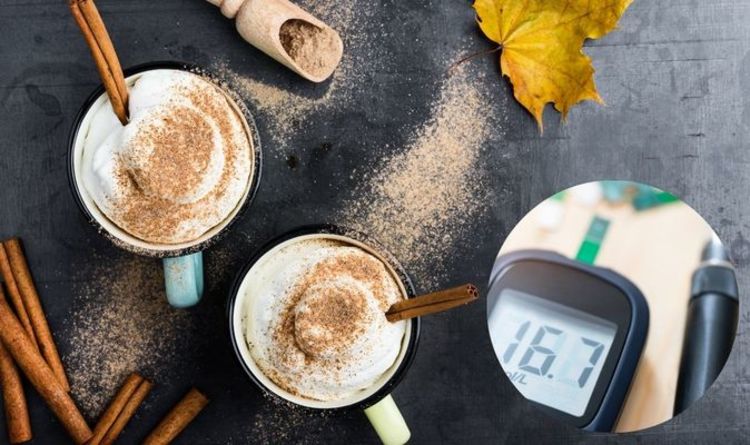Dr David Lloyd discusses using diabetes drug for anti-aging
We use your sign-up to provide content in ways you’ve consented to and to improve our understanding of you. This may include adverts from us and 3rd parties based on our understanding. You can unsubscribe at any time. More info
During type 1 diabetes, the body’s immune system is attacking itself, destroying the cells that produce insulin.
Meanwhile, during type 2, the body is either not producing enough insulin or the cells in the body are not reacting to the insulin produced.
Both distinctive conditions in their own right; today’s focus is on the latter condition, type 2.
One of the best ways to manage type 2 diabetes is through your diet and research suggests that herbs can be used to manage the condition.

One herb in particular appears to be very effective.
Cinnamon is a spice that comes from the bark of a tree and is often found in sweets, baked goods and, occasionally, seasonal coffee offers.
Research from 2010 found that it can also prove useful in improving a person’s levels of glucose and insulin.
Furthermore, the same study discovered that it can improve digestion and levels of antioxidants in the body.
Three years later, in 2013, more evidence was discovered of cinnamon’s multifaceted talents beyond sweeting coffees and satisfying sweet tooths.
Research published in The Annals of Family Medicine journal showed that in supplement form, cinnamon could lead to lower levels of bad cholesterol and higher levels of good cholesterol.
While both the 2010 and 2013 research show that cinnamon can reduce your risk of developing diabetes, both studies did add that it depends on the type and dosage of cinnamon.
What this means is that adding cinnamon to your coffee won’t lower your risk of diabetes, it does mean that the right type of cinnamon has the potential to do so.

As well as cinnamon, there are number of ways to keep control of type 2 diabetes.
While the NHS says that type 2 diabetes shouldn’t preclude you from eating particular types of food it does recommend keeping sugar, fat, and salt intake to a minimum.
Furthermore, the same organisation recommends engaging in at least 2.5 hours, or 150 minutes of exercise a week.
Although, it should be stressed that this is a minimum and doing more will only improve overall health long term as it will bring your weight down.

If lifestyle changes don’t work, medicines are also prescribed to help people manage their diabetes.
Metformin is the most common medication used in the treatment of type 2 diabetes.
It can result in side effects including: bloating, diarrhoea, weight loss, weight gain, nausea, and swelling in different areas of the body.
If you have any concerns about whether you have type 2 diabetes consult your GP.
Source: Read Full Article
